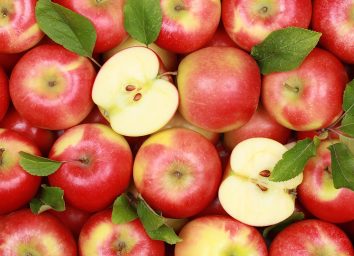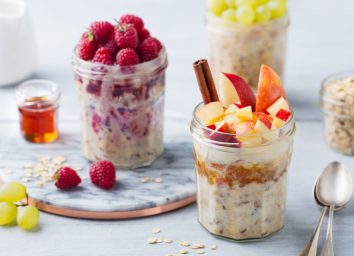20 Most Overrated Healthy Foods
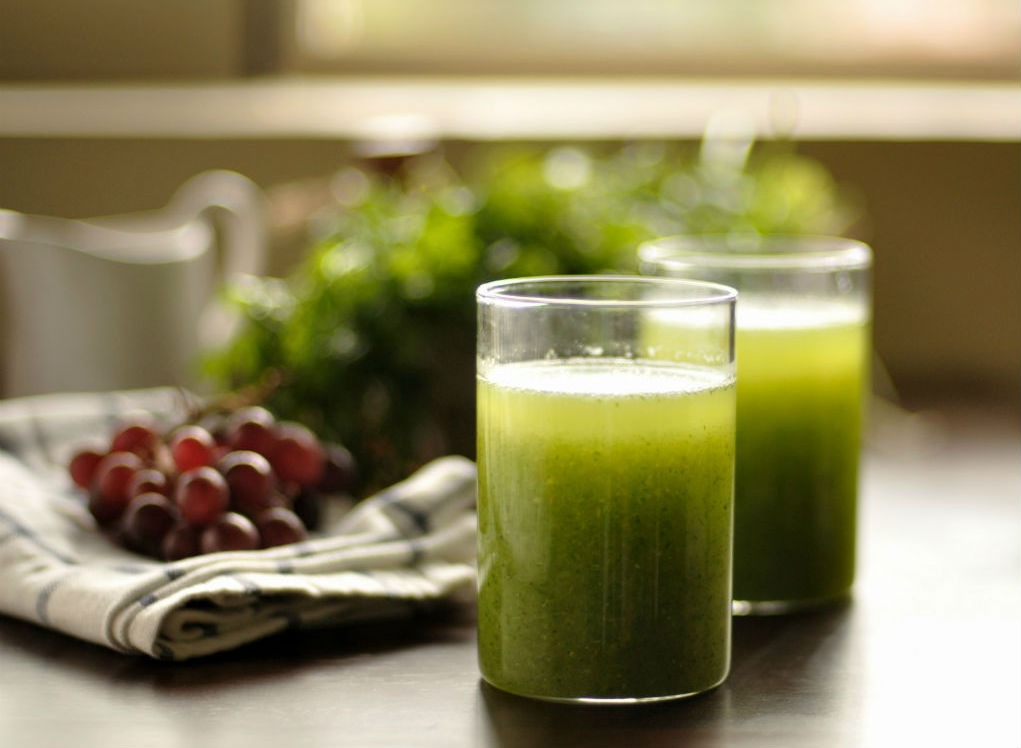
Let’s start off by clearing one thing up: Most of the foods on this list are perfectly fine additions to your diet. The problem is that people often overestimate how healthy they actually are. To achieve your health goals in a sustainable and safe way, it’s imperative to be conscious of the full nutritional picture of everything you’re putting into your body. So, let’s take a closer look at foods that get way more credit than they really deserve—and then be sure to steer clear of these 15 Celeb Diet Trends Nutritionists Hate while you're at it.
Cold Pressed Juices
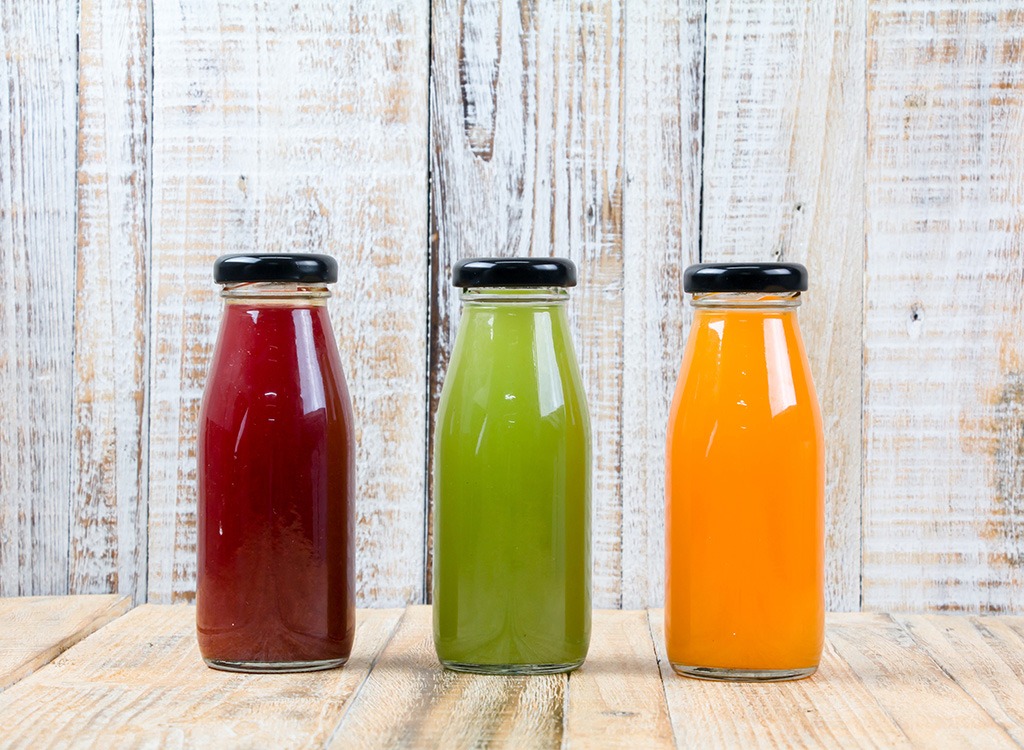
A daily green drink or some sort of cold pressed juice to boost your fruit and vegetable intake may sound like a great idea, but you may want to rethink your strategy. “When a fruit or vegetable is juiced, vital fiber is extracted, leaving you with a beverage that has some nutritional value but usually way too much sugar,” says Stefanie Sacks, MS, CNS, CDN. “I prefer the blended beverage using the whole fruit and vegetable (plus fresh herbs, nuts, and seeds) to make the perfectly wholesome and balanced beverage with the fiber.” If you're still hooked on juicing, consider these 25 Ways to Detox Without Juicing!
Yogurt
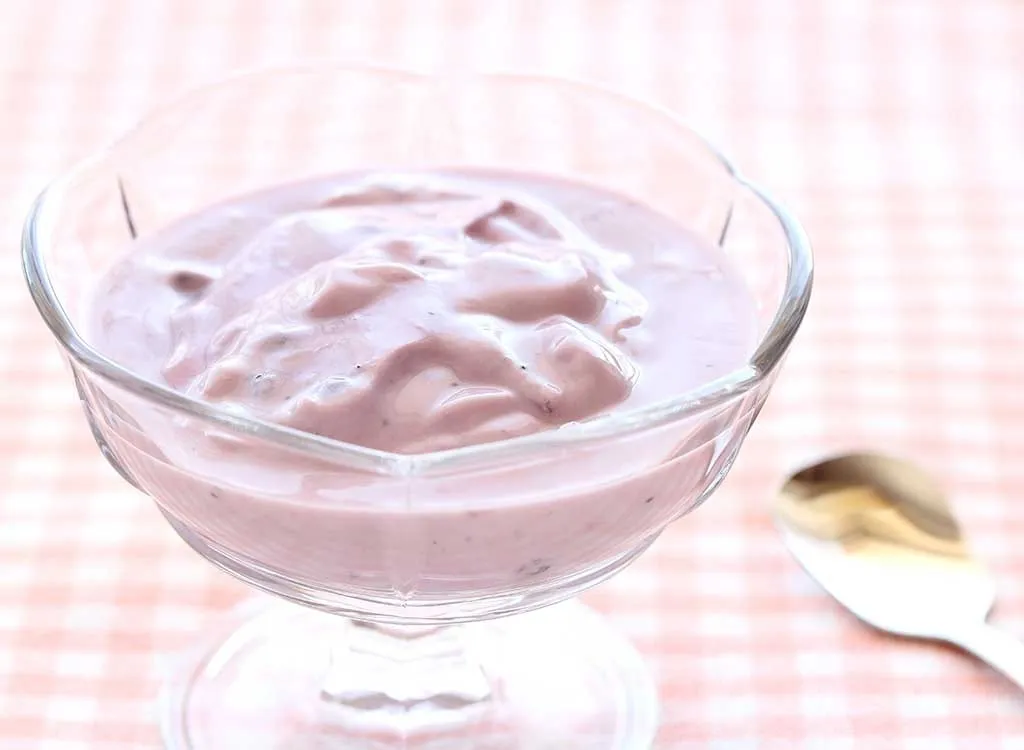
The dairy aisle is overloaded with yogurt products marketed as health foods, but most are full of added sugar and/or artificial sweeteners. “Reading labels in this category is very important,” says Kathy Siegel, MS, RDN, CDN. “Look for the fewest number of ingredients and gomea for the yogurt with the real stuff, such as milk and live and active cultures. The newest dairy product to look for in this category is skyr, an Icelandic dairy product high in protein and low in sugar. It’s similar to Greek yogurt, but is less tart.” Plain Greek yogurt is always an awesome choice, too. Just always steer clear of the flavored yogurt varieties and don't even think about the kinds that come with candy toppings.
Milk Alternatives
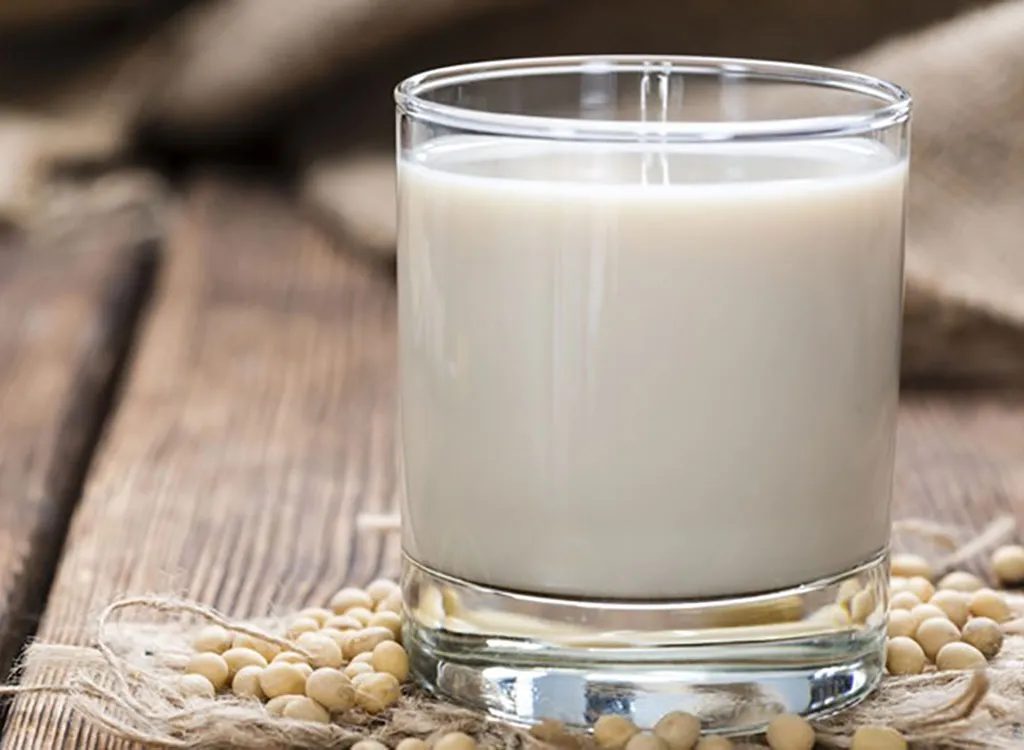
“Milk alternatives—like nut milks, soy milk, and oat milk—are generally only approximately 1 or 2 percent of the ‘nut/soy/oat,’ with the rest of its composition being water, sugar and/or sweeteners, vegetable oil, and a bunch of artificial additives to emulsify, preserve, and make the beverage palatable,” explains Sophie Manolas, clinical nutritionist and founder of The Edible Pharmacy. She suggests checking the label of different milk alternatives to find the one with the least possible ingredients (no more than four ingredients) and always buying the unsweetened version. The very best option (both nutritionally and economically) is to make your own. “All you need is a small amount of your chosen nut, a food processor, some muslin cloth and some filtered water. There are plenty of recipes online for nut milks, and when you have made the ‘milk,’ you're also left with the nut pulp—which you can use to make a gluten-free bread or cake!” Here's an easy tutorial on how to make almond milk at home to get you started!
Egg Whites
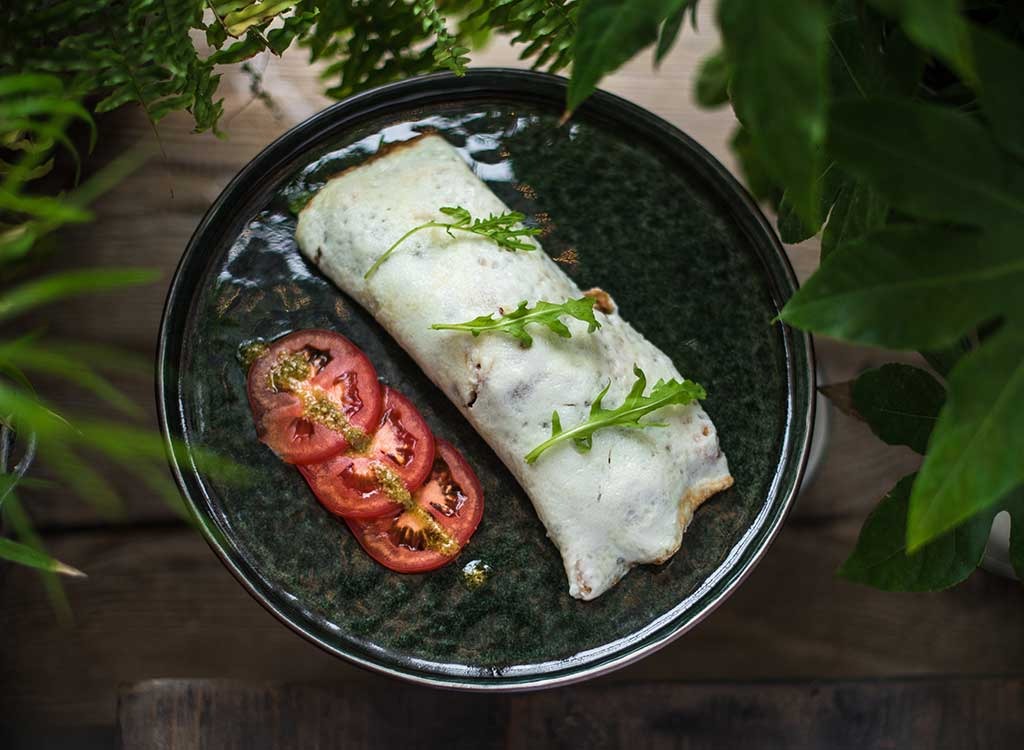
Yes, egg whites are good for you, but you know what’s better? Eating the whole egg! One of the biggest myths in the food industry is that the cholesterol in the foods you eat can trigger a cholesterol problem. But what you eat has virtually no impact on the cholesterol level in your blood. Plus, when you eat fragmented foods, your body starts to crave the rest—and that can make you more likely to reach for something unhealthy. Egg yolks contain choline, which is essential for the functioning of all cells (especially brain cells), so eat the entire egg!
Bananas
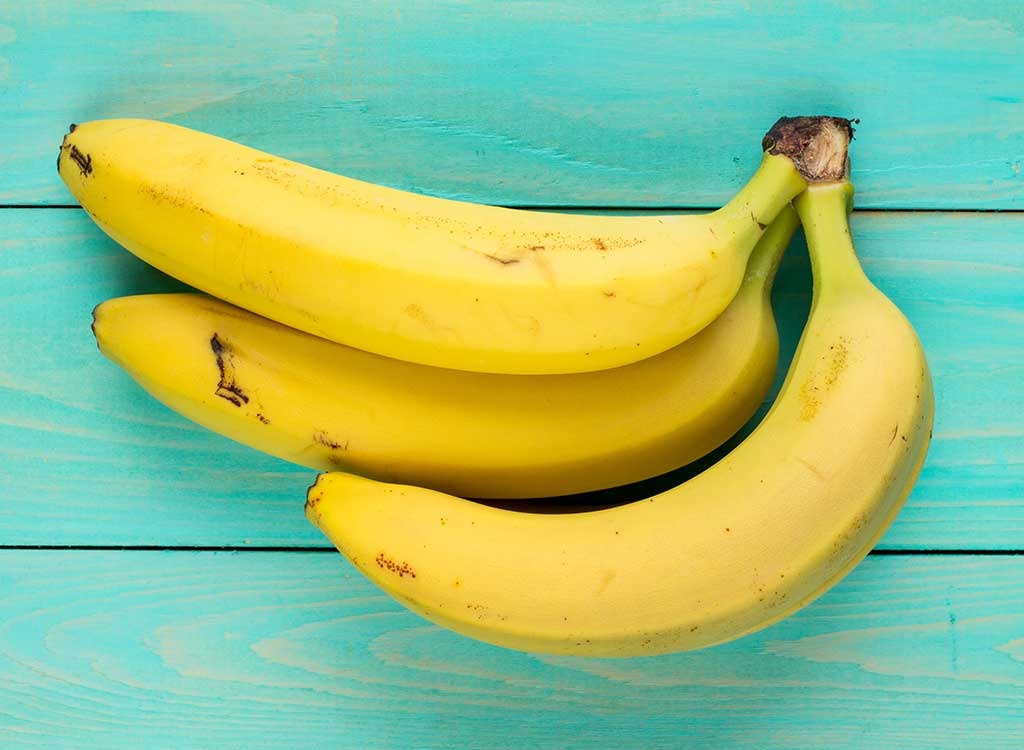
Before you freak out, here us out. While the health benefits of bananas are amazing, this yellow fruit is more calorie- and sugar-dense than you might think. So, portion control—especially if you’re trying to lose weight—is more important with bananas than with most other fruit. It's best to pair your banana with a nut butter or healthy fat to help your body metabolize the sugar in the banana.
Low Fat Butters
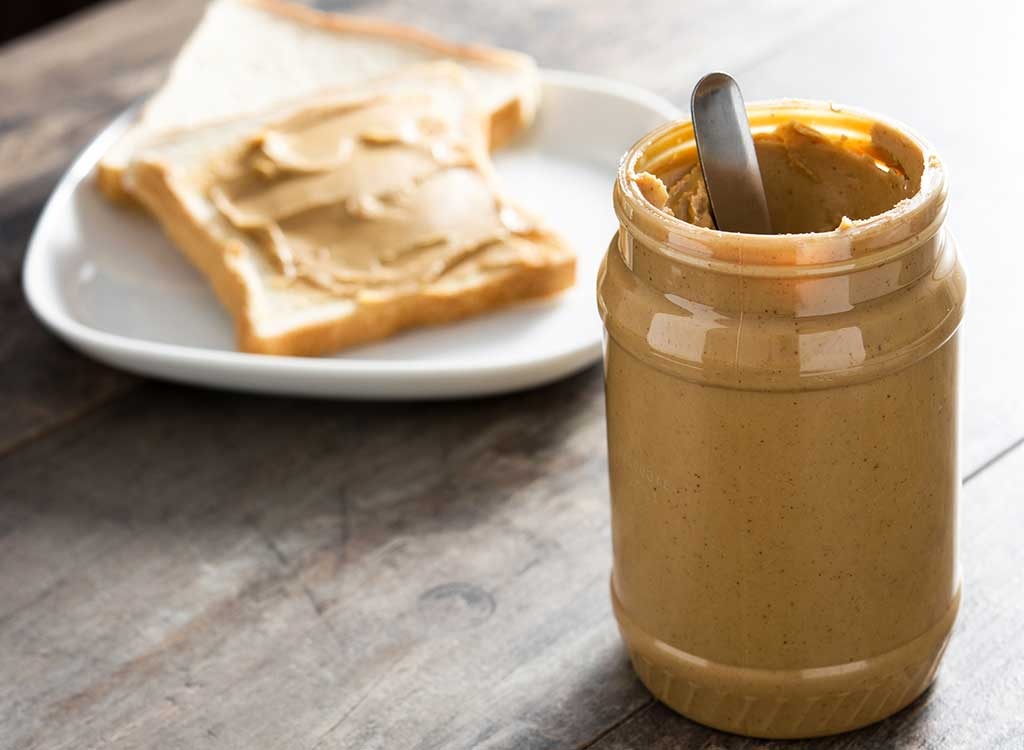
We’ve all heard that nut butters contain many health benefits. So, the lower-fat version must be better, right? Wrong! “When the fat is cut, more sugar is added,” says Siegel. “Nut butters, such as peanut butter, are packed with heart-healthy monounsaturated fat. The fat in peanut butter will not only help keep your heart healthy but will keep you feeling satisfied for longer.” She suggests looking for a natural nut butter with two simple ingredients: nuts and salt. Take a look at our exclusive report on The Top 36 Peanut Butter Brands—Ranked! to find out the best and worst jars at the supermarket!
Brown Rice
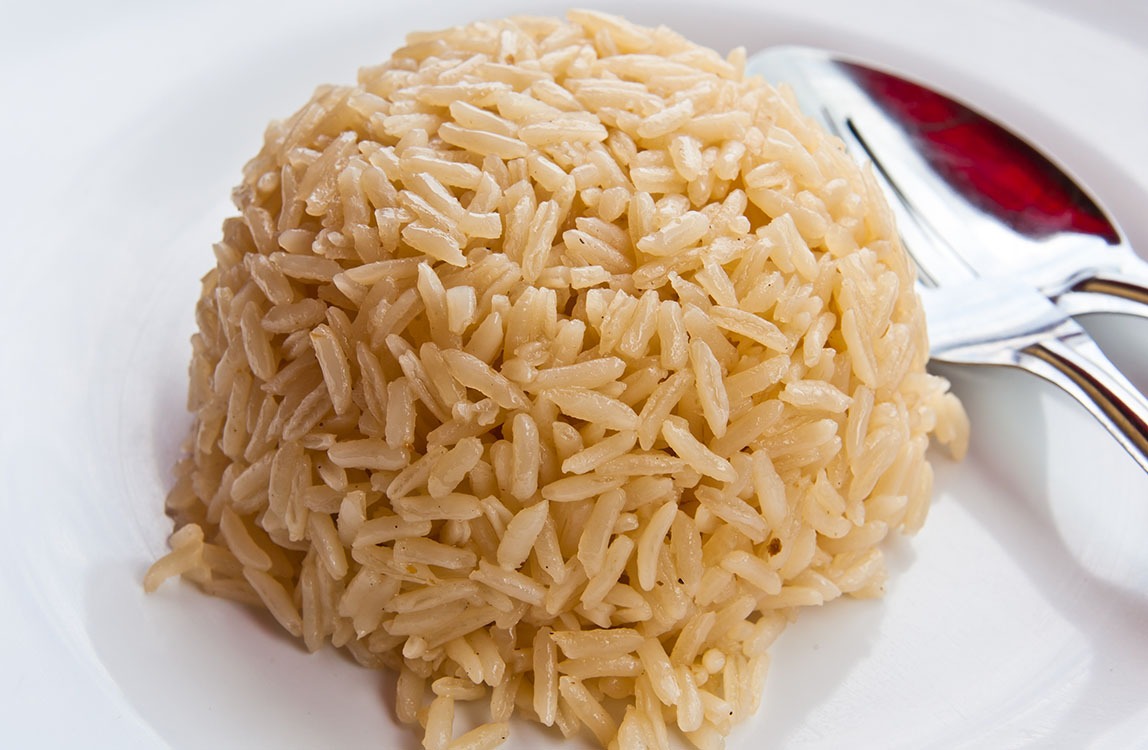
We hate to bring you down a notch, but opting for brown rice over white rice doesn't make you that healthy. While brown rice does have some of the nutrients—whereas white rice loses its iron, fiber, and vitamins B1 and B3 during the processing—brown rice still doesn't have that great of a nutritional profile when you consider the calories. To get more of a nutritional bang for your calorie cost, always choose the least-processed version you can find; they'll usually be the long grain kinds that take about 30-40 minutes to make.
Bulletproof Coffee
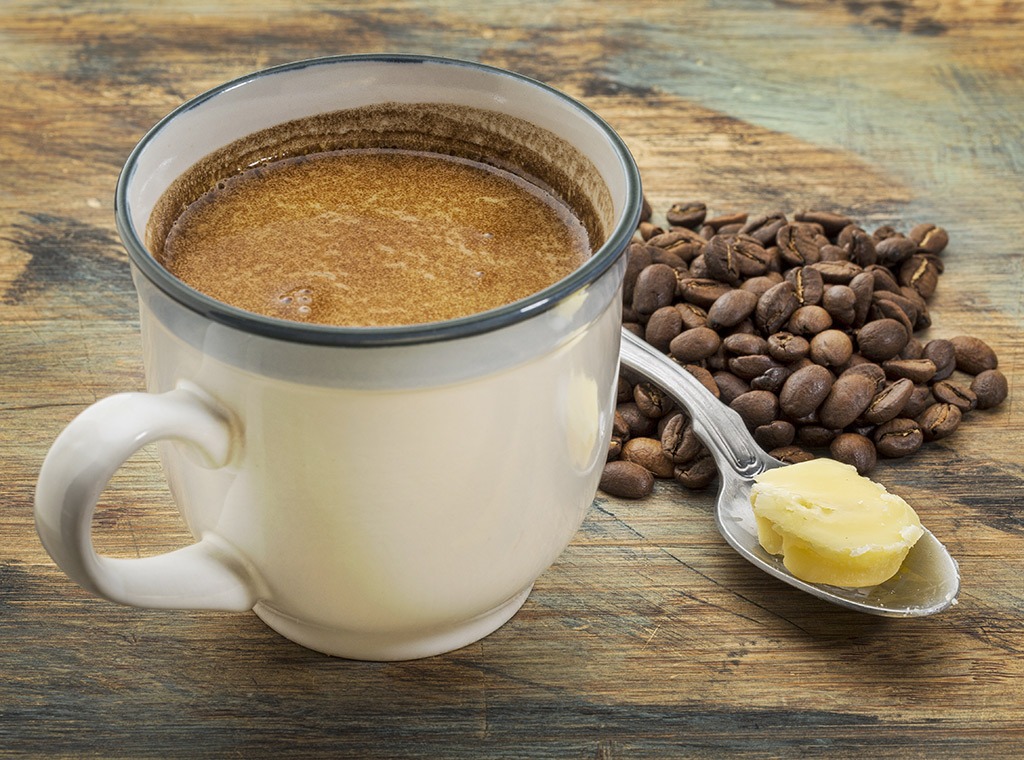
Bulletproof coffee has been growing as an “it” breakfast for the health conscious. It blends coffee made from low-toxin coffee beans with grass-fed butter and Brain Octane, which is coconut oil extract 18 times stronger than coconut oil—and it has about 440 calories. While many say they feel full until lunch (as it should with that amount of calories!), drinking Bulletproof coffee on the reg can seriously backfire if it's not a meal replacement. And even if you’re replacing your regular breakfast with Bulletproof coffee consistently, it means that you’re forgoing essential nutrients at the start of your day.
Cereal
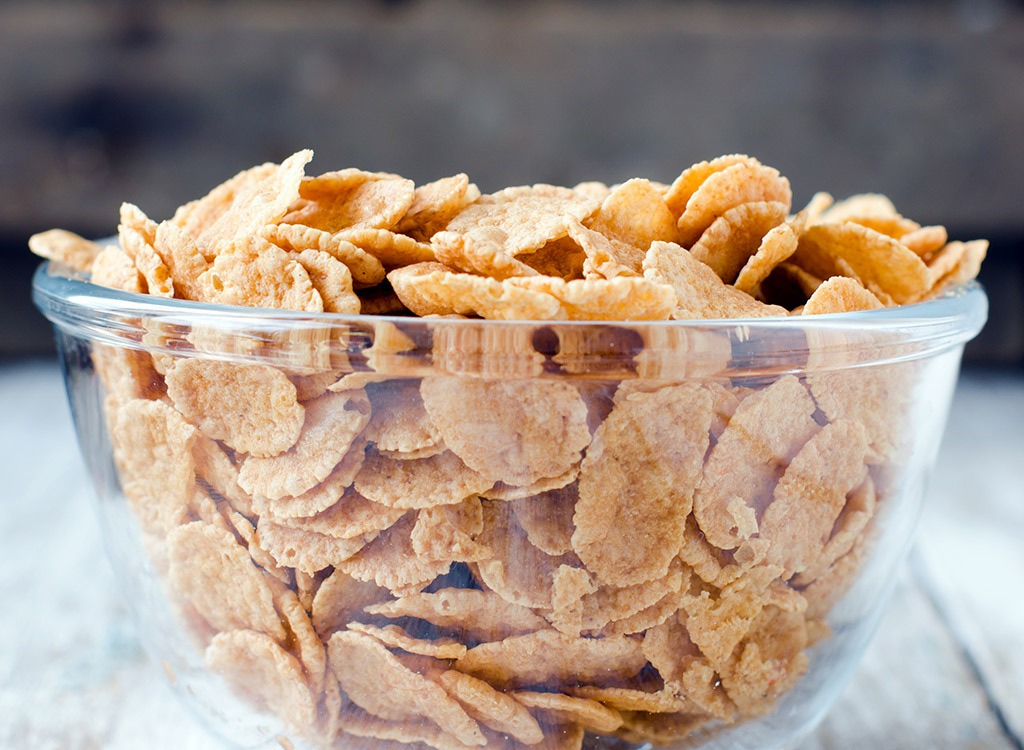
“Although convenient and possibly containing some fiber, most cereals are loaded with sugar and simple carbohydrates and lacking other nutrients, protein, and good fats that could regulate the sugar being quickly loaded into your system,” says Manolas. “Even healthy-looking granolas may be roasted in vegetable oils, destroying their nutrition.” Manolas suggests making your own cereal with rolled oats and water in a saucepan. “Add cinnamon and frozen berries to sweeten and a tablespoon of full-fat natural yogurt to make it creamy and satisfying while getting some good-for-your-gut probiotics.”
Acai Berries
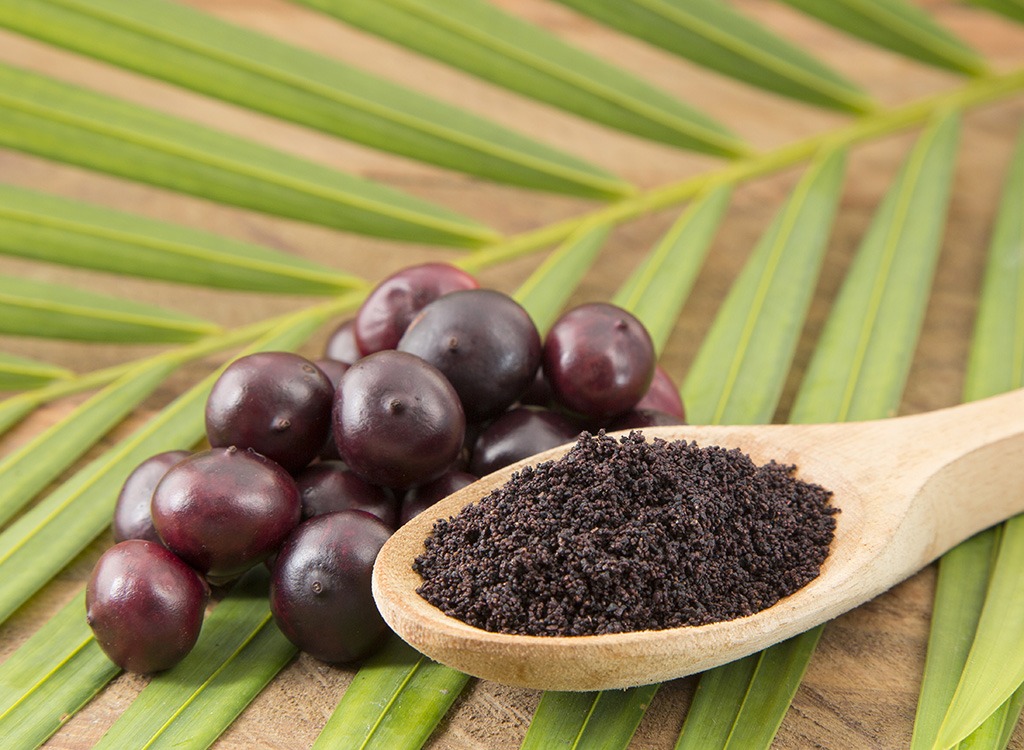
“When picked fresh off the tree, whole acai berries are high in antioxidants. But what most packets don’t point out is that those antioxidants are mostly very unstable and are destroyed by prolonged exposure to heat, light, and air after they're picked,” says Manolas. “These berries are often picked, dehydrated, transported, and packaged, then flown internationally before sitting in a supermarket for months before we consume them—so those antioxidants are all but gone by the time they reach your mouth.” She adds that various other claims of acai berries (like aiding weight loss, depression, and arthritis) are far-fetched in her opinion because they're not backed by studies.
Coconut Sugar
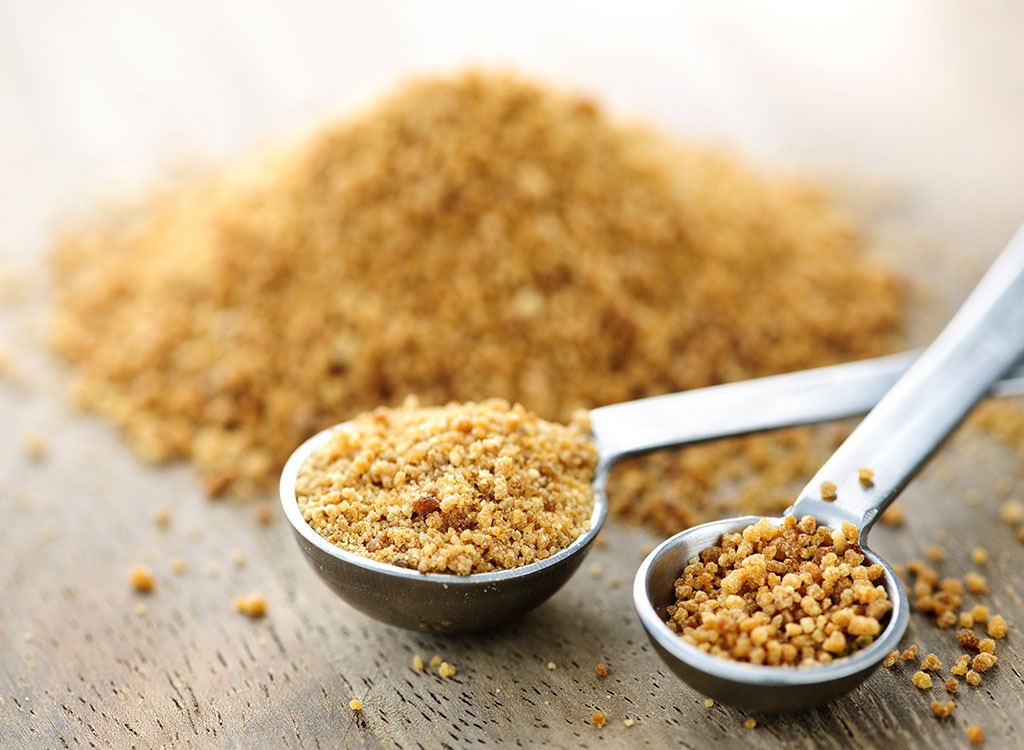
Coconut sugar is made from the sap of the cut flower buds of the coconut palm tree and it’s often touted as a “healthy sweetener” because it’s low on the glycemic index and low in fructose. Unfortunately, it has about the same number of calories as table sugar; so, while high prices and marketing may make you believe it’s healthy, it really is only marginally healthier than the classic white stuff.
Agave Nectar
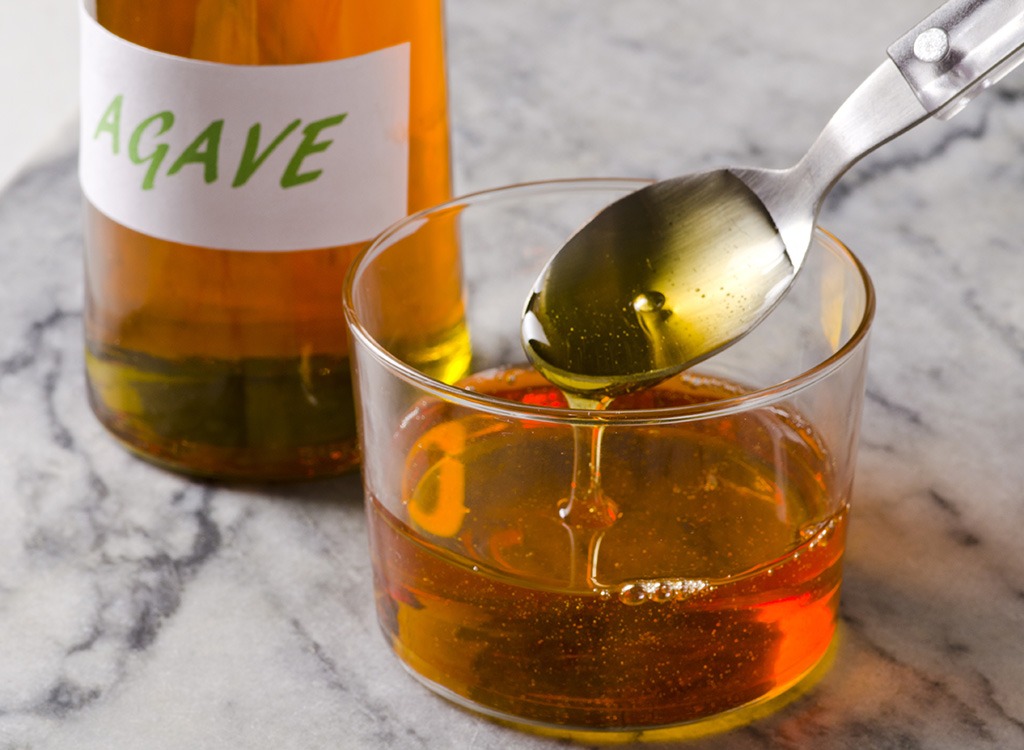
Like coconut sugar, brands often brag that they’re sweetened with agave. While agave is low glycemic (meaning it won’t spike your blood sugar as much as other sweeteners) it’s actually 150 percent sweeter than and higher in calories than table sugar. It’s also higher in fructose than any other sweetener—even high-fructose corn syrup! Speaking of, find out the 23 Surprising Foods That Shouldn’t Have Syrup in Them—But Usually Do!
Gluten-Free Foods
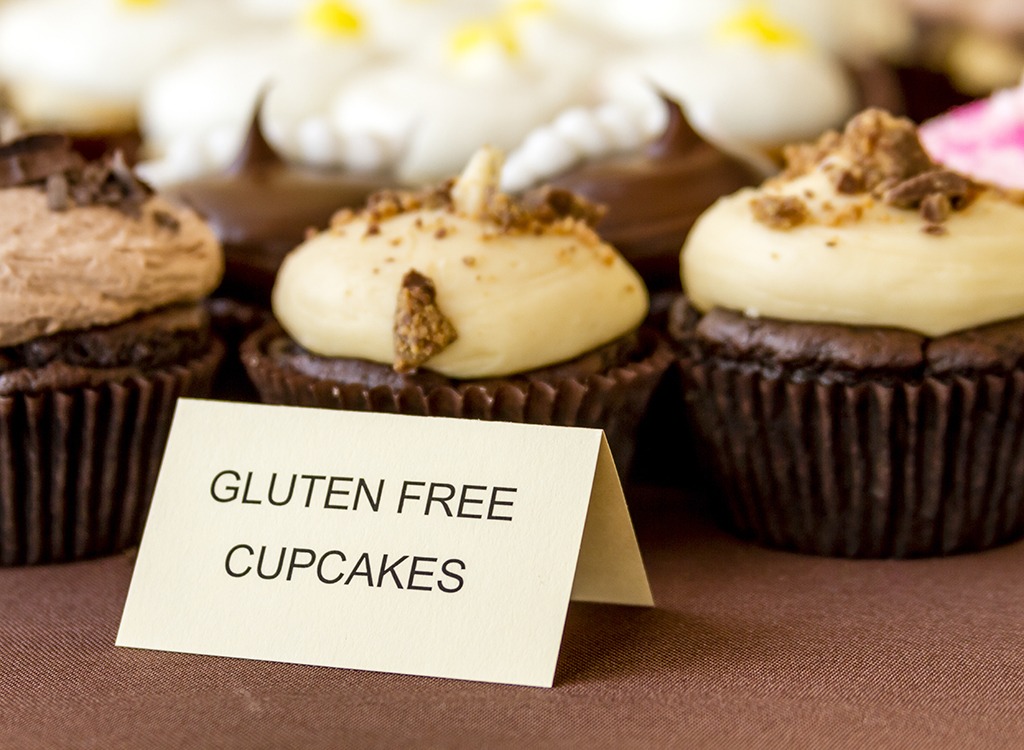
“No one ever died from not eating gluten, and cutting it out of your diet can relieve a lot of digestive complaints and inflammatory conditions,” says Manolas. “However, most packaged foods marketed as gluten-free are not doing your health any particular favors. They are generally a motley mixture of simple carbohydrates and various chemicals to bind food together and don't hold much nutritional value.” Simply put: Gluten-free isn’t code for healthy. A cookie is still a cookie, even if it’s gluten-free—so read nutrition labels carefully.
Trail Mixes
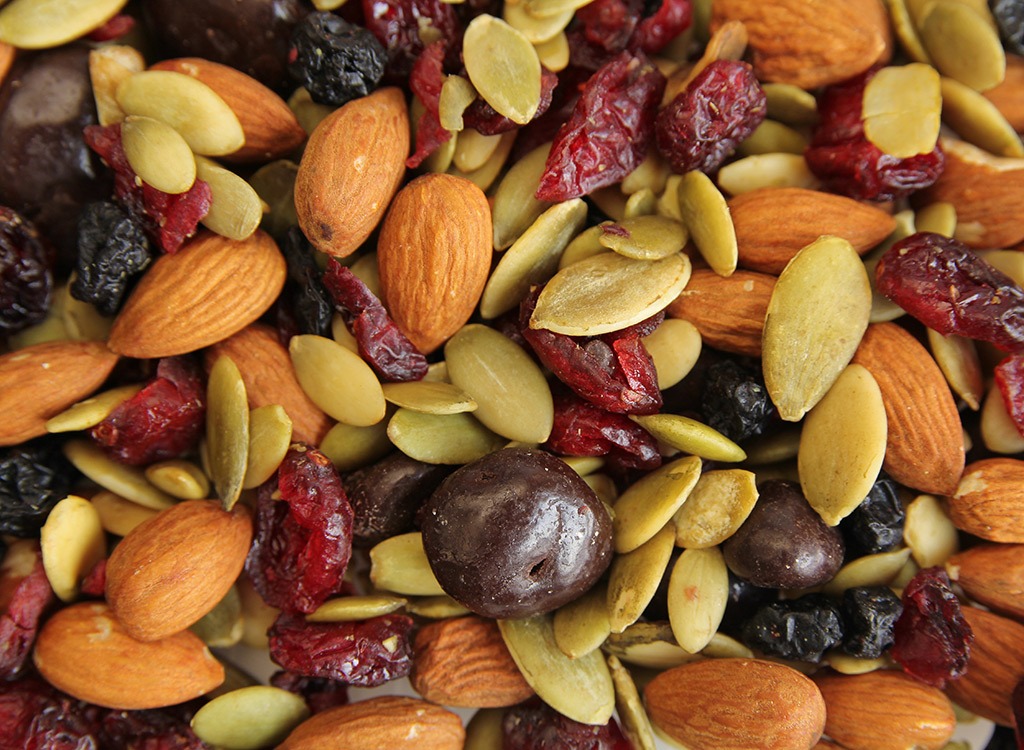
Trail mixes can be a great snack, but always make it at home so that you can control ingredients to avoid unnecessary sugar and calories. “All too often, the store-bought bags are packed with sugared fruit, chocolate, and yogurt raisins,” says Sacks. Make your own by using plain oats, nuts, and seeds. If you need something sweet, add a few unsweetened dried fruits.
Energy Bars
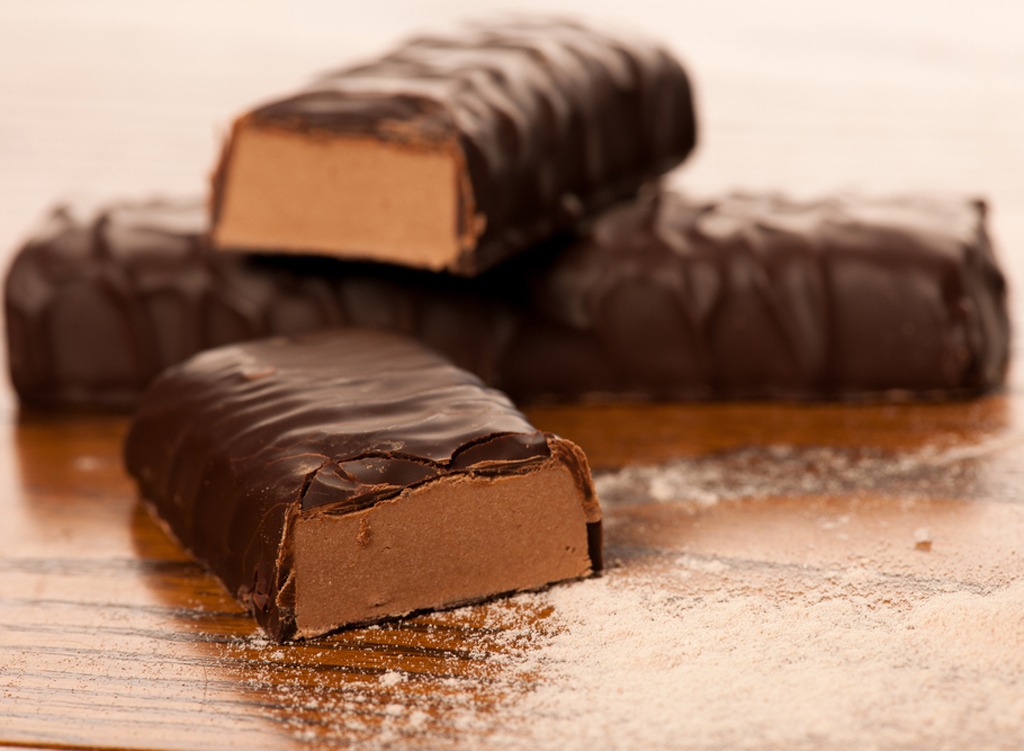
“Most bars—granola, power, energy, meal replacement, and so on—are doppelgangers for the candy kind,” says Sacks. “They are packed with sugar (and its many euphemisms whether brown rice syrup, barley malt, or cane syrup), highly processed protein like soy protein isolates, and chocolate (typically not the good dark kind).” If you think that this is overshadowed by the vitamins and minerals that are added in, it’s important to remember that these aren’t always digested in the same way as the ones from real, whole foods. For some bars we actually approve of, bookmark these 16 Best Nutrition Bars for Every Goal.
Coconut Oil
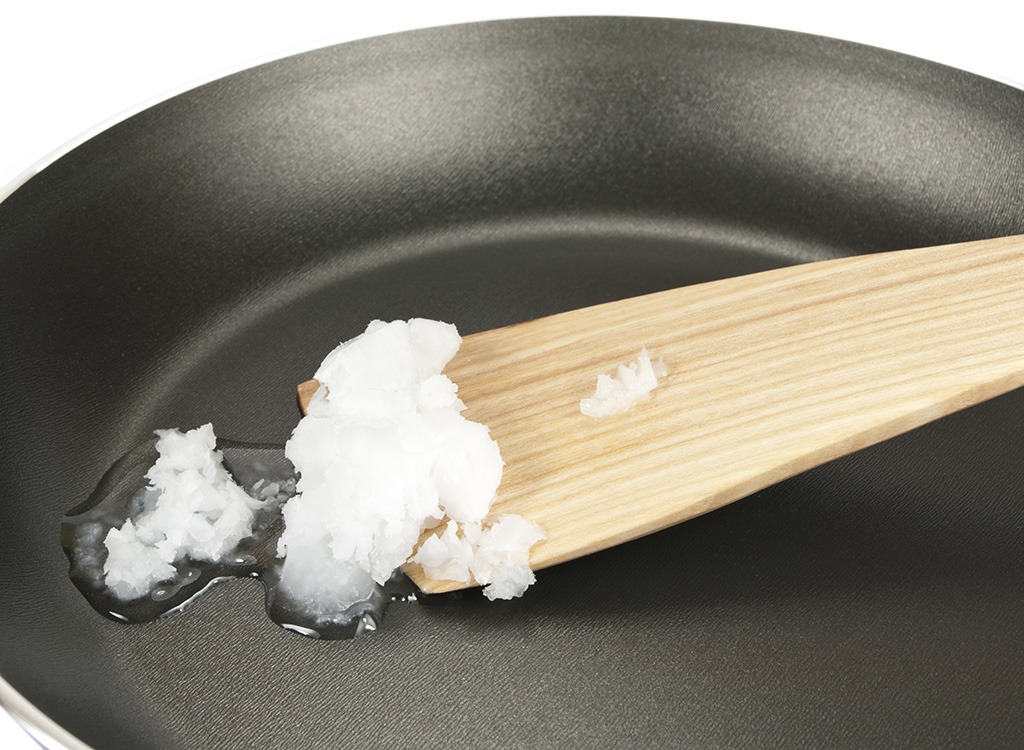
While coconut oil can be good in moderation—it has been linked to improving immune function and helping to fight cancer and heart disease—87 percent of its fat is saturated (13.5 grams and 120 calories per tablespoon; the recommended daily limit is 14 grams). Our point: Use coconut oil very, very sparingly. Olive oil is lower in saturated fat and has been proven to lower LDL cholesterol (the bad cholesterol).
Sports Drinks
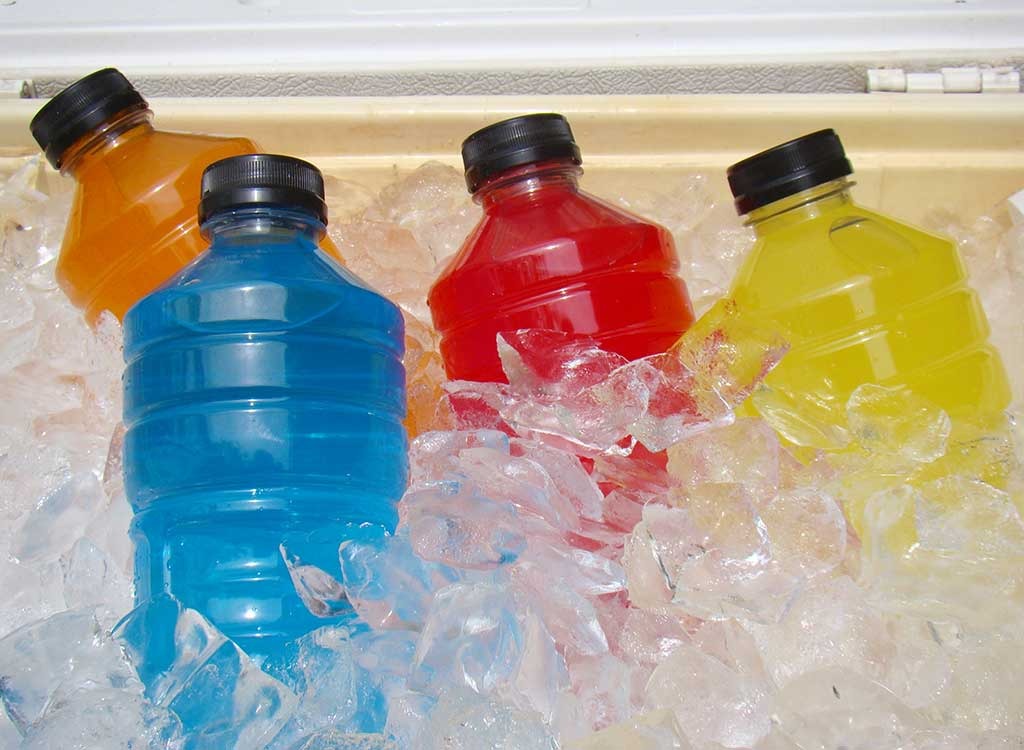
Unless you've been severely depleted of electrolytes (such as from being sick or extreme exercising), you’re better off drinking water. “For most people, sports drinks are not necessary and are only filling you up with too much sugar,” says Siegel. “Sports drinks contain potassium and sodium, the important electrolytes lost during excessive exercise. But unless you’re endurance training or doing an intense workout for well over 60 minutes, stick with water to rehydrate."
On-The-Go Salads
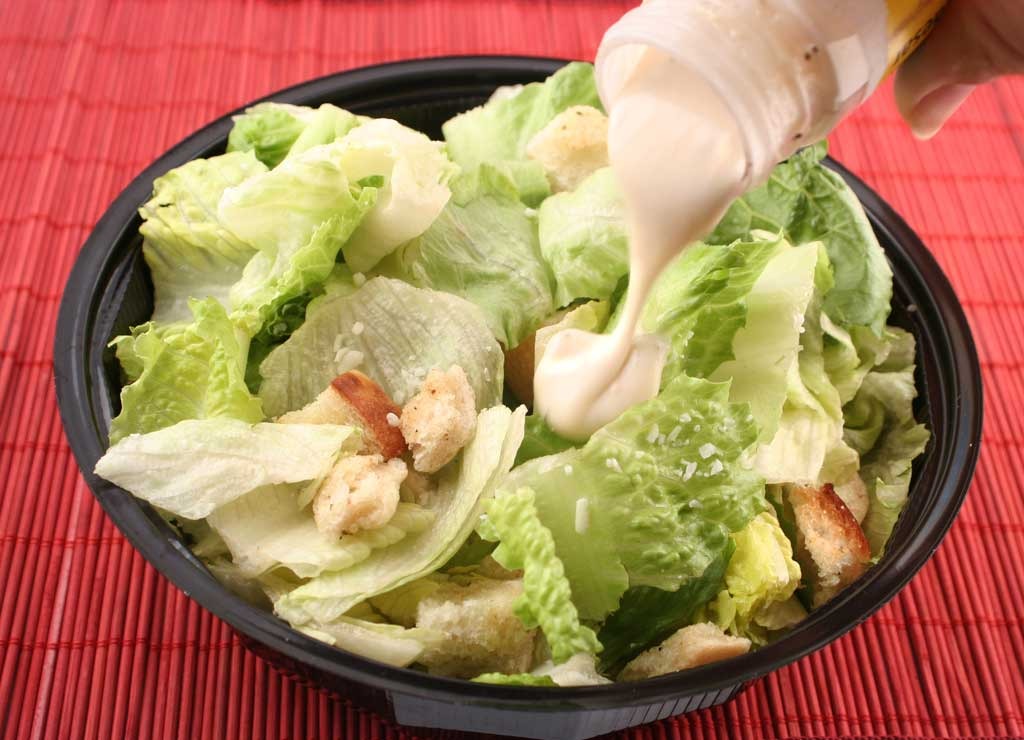
Many casual fast foods joints are now offering grab-and-go salads. “Be mindful as you choose one since many of these salads are loaded with unnecessary sodium, sugar, fat, and calories,” says Sacks. “Keep an eye out for the fried chicken cutlet (versus the grilled), croutons boasting chemicals, too much cheese, candied nuts and fruit, and overly creamy dressings.”
ICYMI: The 20 Worst Restaurant Salads in America
Wraps
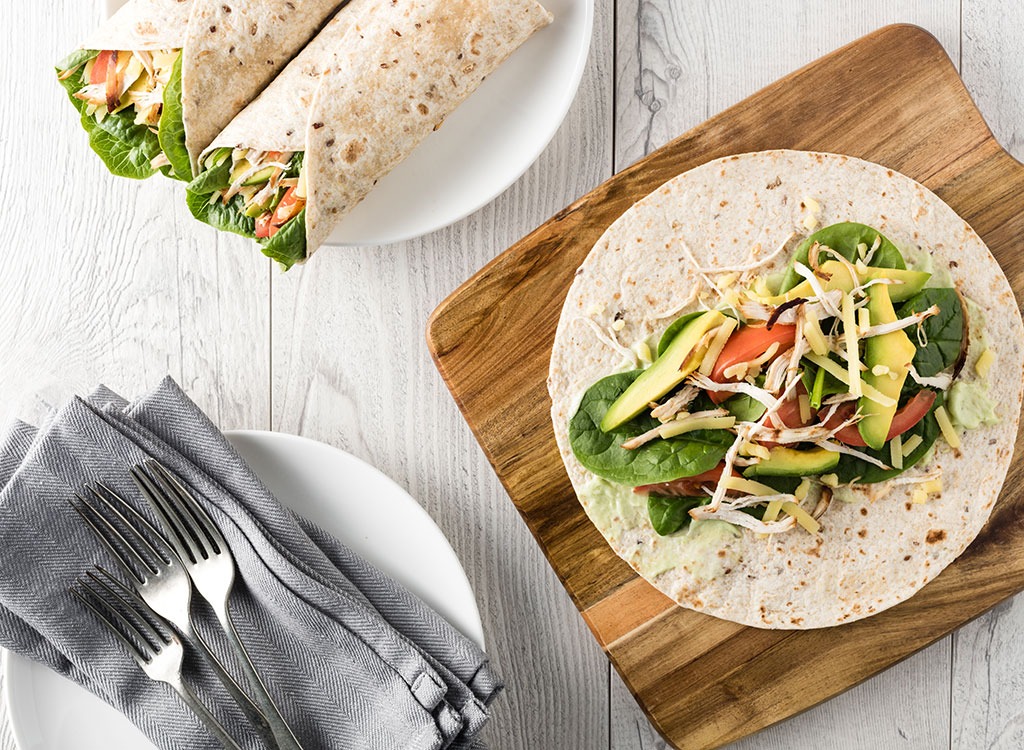
Sandwich wraps sound like a better choice for lunch, but you're probably being fooled. “They may be thinner, but wraps are usually packed with refined flours, hydrogenated oils, and very little fiber,” says Siegel. “Whole grain bread is actually the better choice. But if you love a wrap, look for products with whole grains listed in the first ingredient and no trans fat. Then, pack with lean meats and lots of veggies.”
Coconut Water
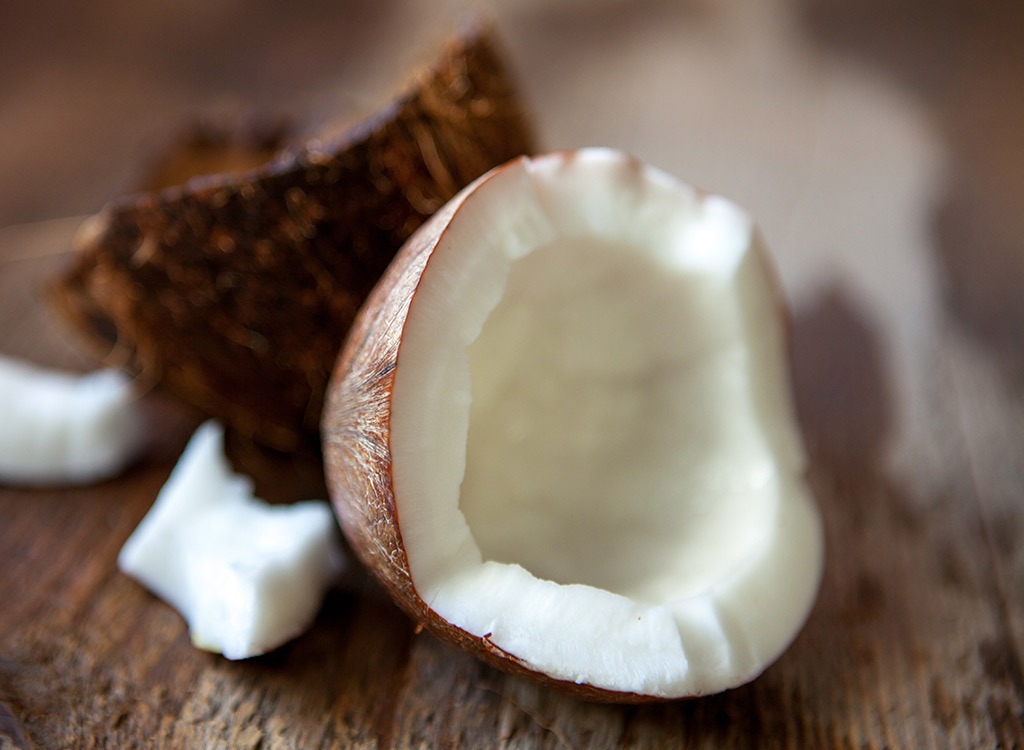
Like with sports drinks, it’s important to note that most people don’t actually need to hydrate with anything besides water when they workout. Plus, many of the claims surrounding the benefits of coconut water (including that they can boost weight loss), have yet to be proven by substantive clinical testing. One thing is for sure: most coconut waters have over two teaspoons of added sugar and at least 50 calories. If plain water is too boring for you, then stir up one of these 50 Best Detox Waters for Weight Loss.
